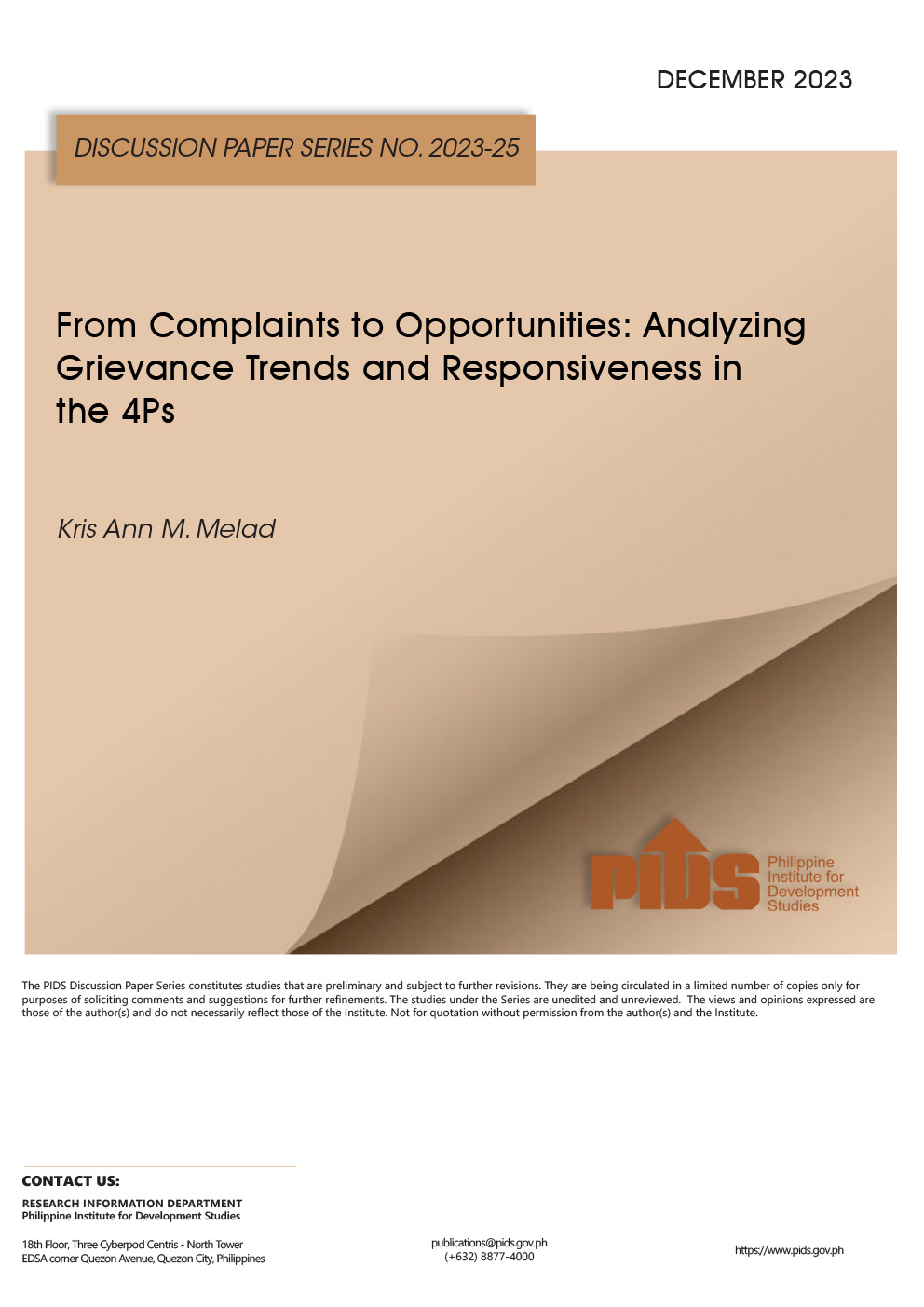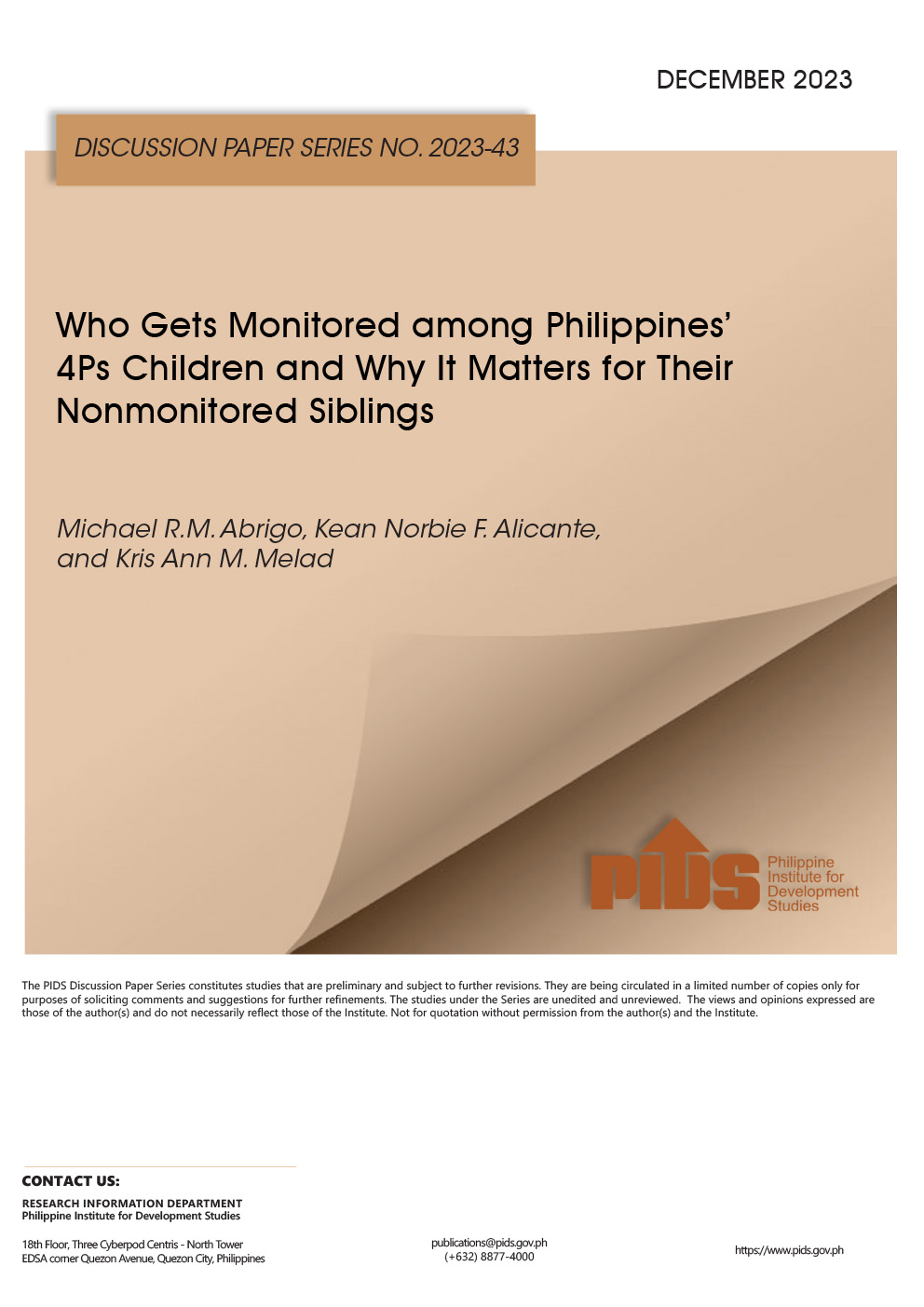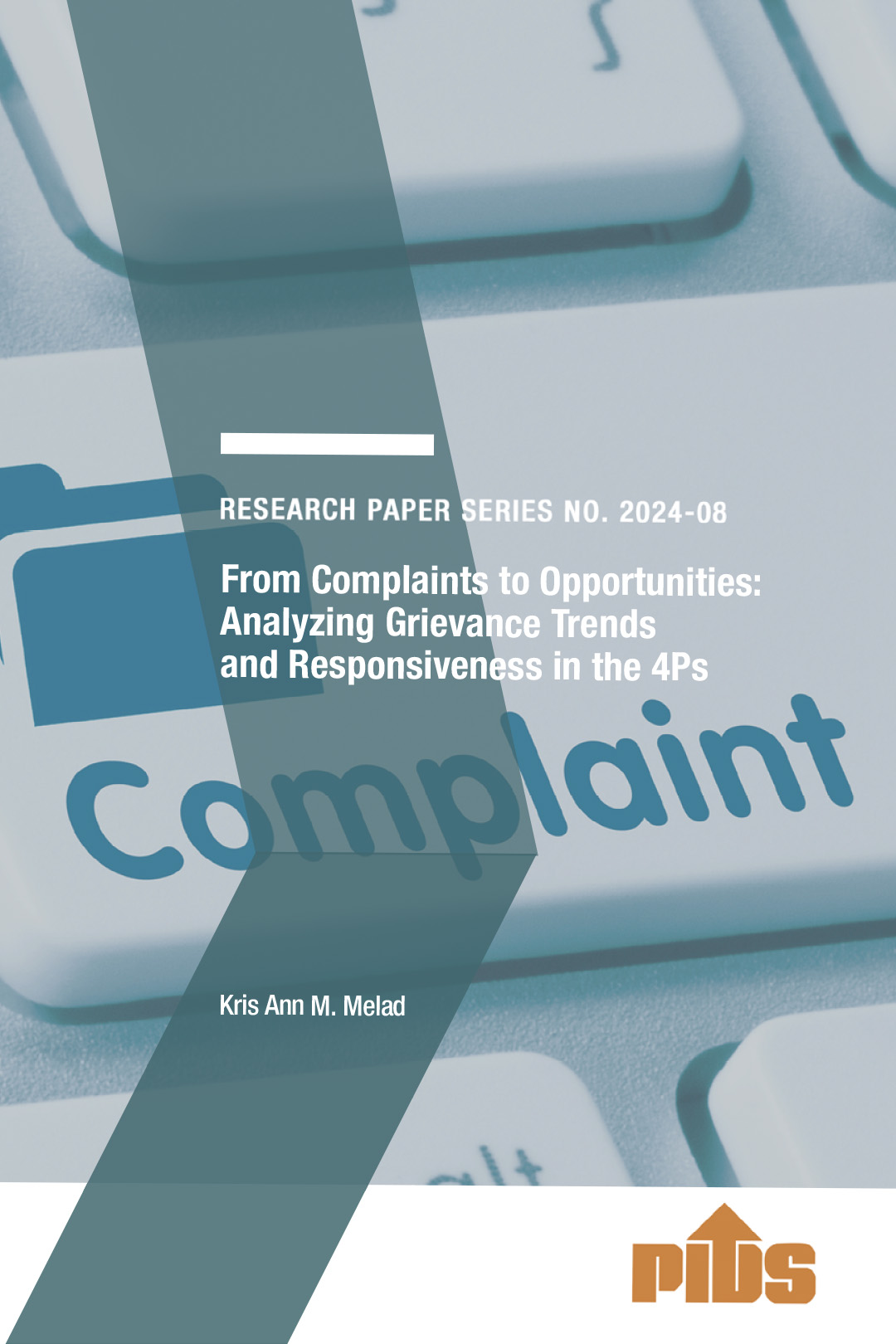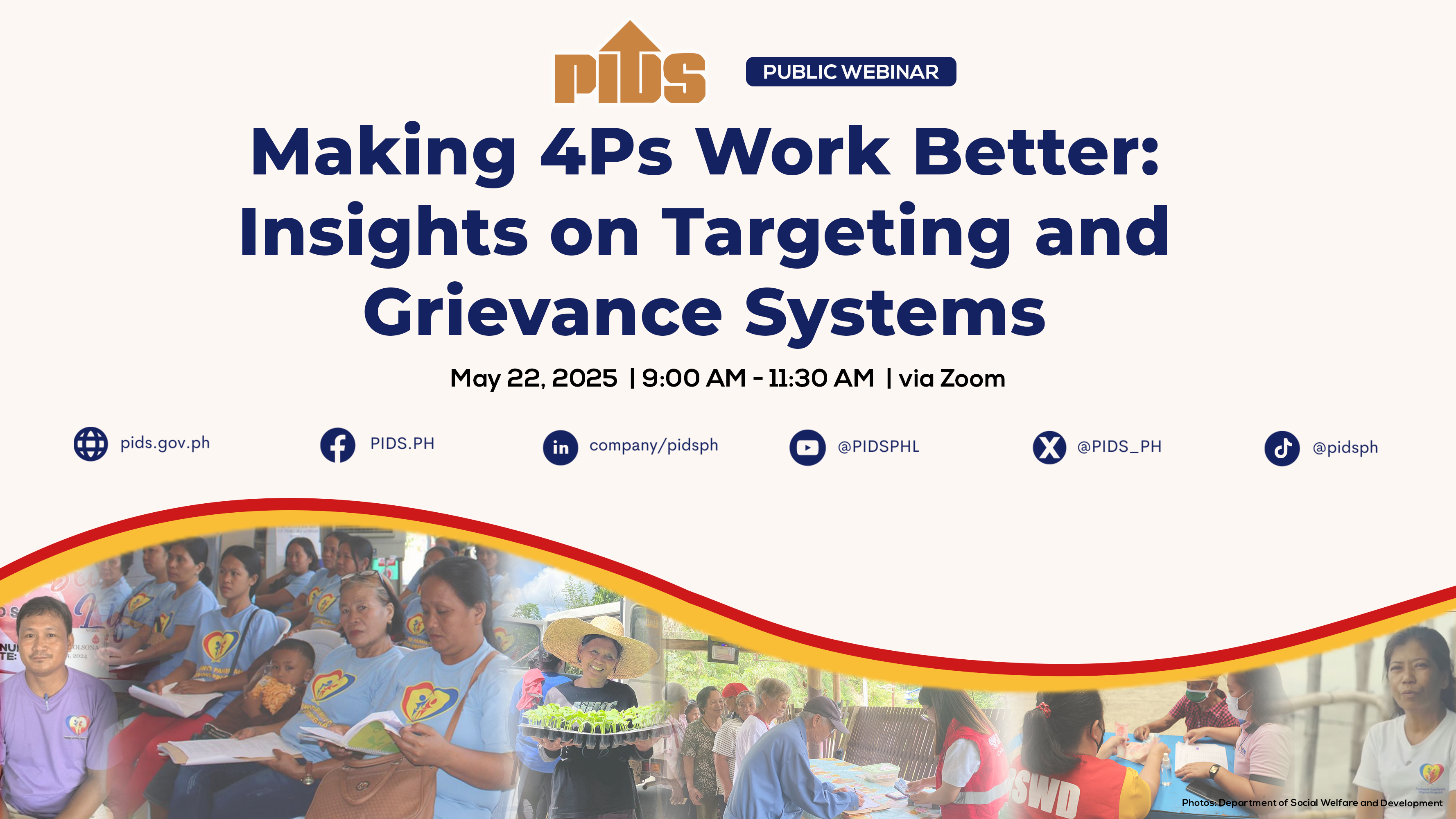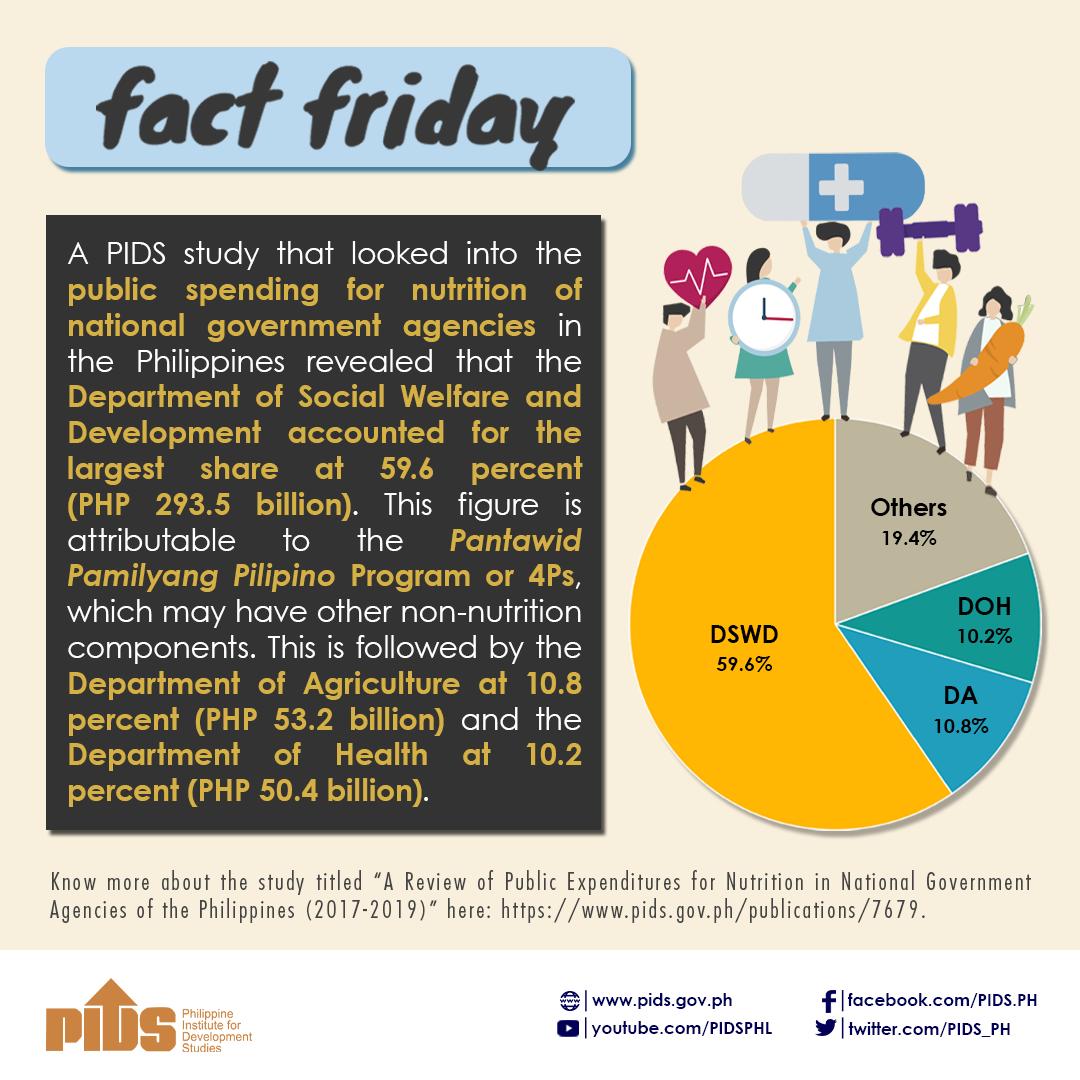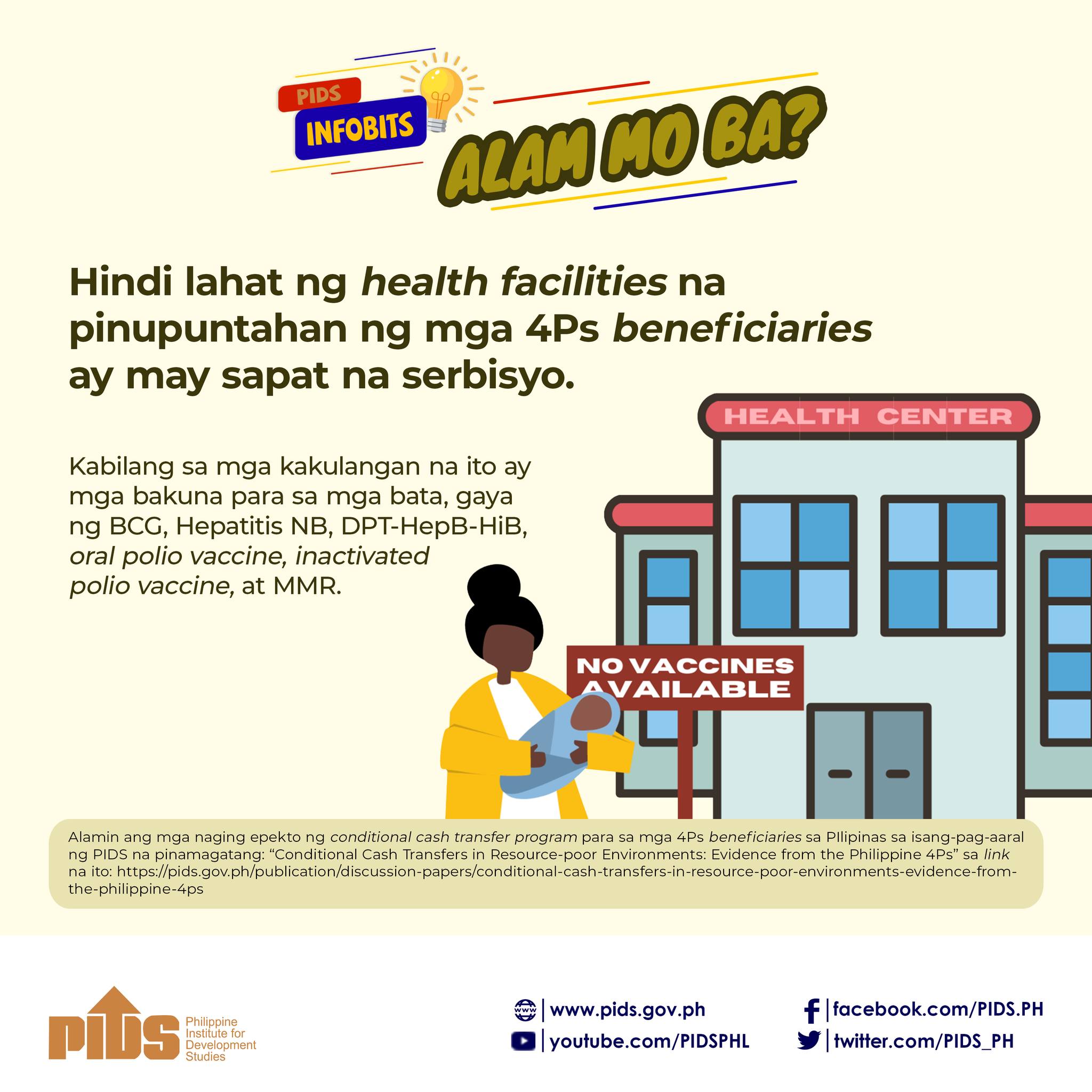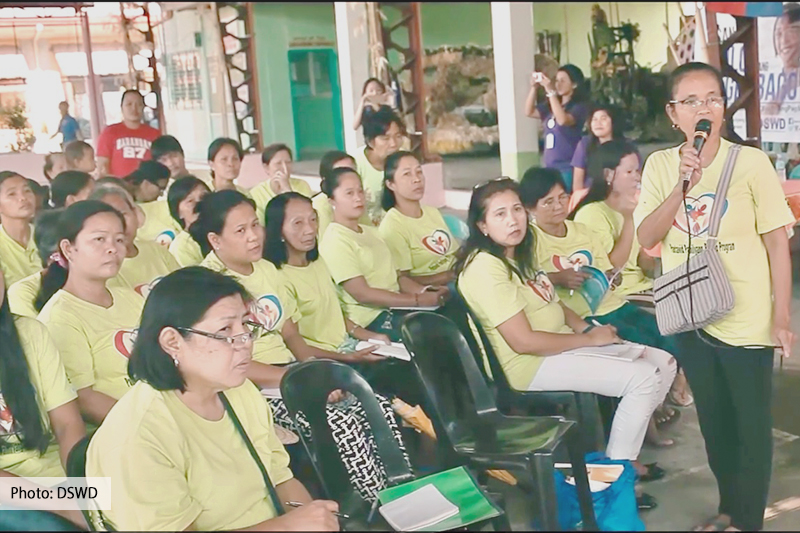
As the Philippines’ national anti-poverty program, the Pantawid Pamilyang Pilipino Program (4Ps) relies heavily on its grievance redress system (GRS) to guarantee accountability and program quality. However, a recent study by the Philippine Institute for Development Studies (PIDS) highlights the need for significant improvements in its GRS to effectively address beneficiary concerns and enhance program delivery.
The study, titled “From Complaints to Opportunities: Analyzing Grievance Trends and Responsiveness in the 4Ps” by PIDS Supervising Research Specialist Kris Ann M. Melad underscores the crucial role of the GRS in addressing concerns like fraud, corruption, and leakages. Despite facilitating due process, the study reveals that focused strategies, well-trained staff, and efficient procedures are needed to guarantee prompt and positive resolutions for all grievance types in the 4Ps grievance system.
“Every year, the program receives an average of around 100 thousand grievances highlighting the significant need for effective resolution. Notably, the most prominent grievance category are payment related issues constituting 46 percent of the total cases, indicating a substantial challenge in the distribution or receipt of cash transfers,” Melad said.
Deeper analysis reveals that underpayments are the biggest challenges for beneficiaries, making up 64 percent of payment complaints. According to Melad, while various complaint channels exist such as grievance forms, walk-ins, phone calls/texts, social media, email/website, snail mail, and traditional media, most beneficiaries prefer direct interaction, highlighting the need for skilled program staff.
“Investing in capacity building with enhanced communication and conflict resolution skills is imperative to ensure the program’s responsiveness in handling of grievances,” Melad urged. “The high demand for direct communication highlights the need for a more qualified workforce equipped to handle grievances effectively,” she added.
Furthermore, the study reveals significant variations in resolution times across regions, suggesting that some areas struggle with efficiency or are facing unique challenges. “Regional disparities significantly influenced resolution timelines, highlighting the need for tailored interventions across different regions,” Melad emphasized. She also pointed out the need for more data to delve deeper into the differences in how local program management offices handle grievances, allowing for further improvement.
Another major issue is the increasing number of grievances following natural disasters and procedural updates. This surge, while partly positive due to increased awareness, also revealed limitations in handling volume and addressing root causes. Malfunctioning Management Information Systems (MIS), where all grievances are encoded, further hampered data analysis and masked potential problems.
According to Melad, “the 4Ps GRS should improve data management which includes validation of its administrative data to prevent specific data issues that are encountered in this study, such as missing data, non-standardized and invalid entries”.
The study emphasizes the need for better beneficiary awareness of filing grievances and understanding of program procedures. The program should actively educate beneficiaries, especially new participants, on available grievance channels and equip them with the knowledge to address common issues independently.
Transparency and accountability are crucial aspects highlighted by the study. “By providing stakeholders with regular updates and necessary information, the program establishes trust and reliability among its beneficiaries and strengthens its commitment to addressing grievances effectively and efficiently,” Melad explained.
The study pushes 4Ps to examine current practices and apply its findings to refine policies and procedures. It emphasizes that a well-functioning GRS is vital for ensuring social protection programs such as 4Ps deliver quality service and effectively address beneficiary needs.
Read the full study here: https://pids.gov.ph/publication/discussion-papers/from-complaints-to-opportunities-analyzing-grievance-trends-and-responsiveness-in-the-4ps. ###

